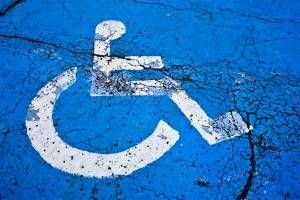Is Disability Insurance Unemployment Insurance Under another Name?
 More generous unemployment benefits tend to elevate participation rates since workers must be looking for work to qualify. With disability insurance (DI), however, the opposite applies: to qualify applicants must generally demonstrate that they cannot work. In theory, disability and unemployment should not be correlated — and from 1966 to 1985 they were not, according to a new study prepared for the Brookings Papers on Economic Activity by Olivier Coibion and two others. But in 1984 DI eligibility criteria were eased so that applicants could qualify based on a combination of conditions rather than just one. Since then, highly subjective conditions such as back pain and mental illnesses have grown to account for most DI beneficiaries, and claims have become more correlated with unemployment (see right-hand chart). That strongly suggests that many workers find a way to qualify for DI when other benefits have been exhausted…
More generous unemployment benefits tend to elevate participation rates since workers must be looking for work to qualify. With disability insurance (DI), however, the opposite applies: to qualify applicants must generally demonstrate that they cannot work. In theory, disability and unemployment should not be correlated — and from 1966 to 1985 they were not, according to a new study prepared for the Brookings Papers on Economic Activity by Olivier Coibion and two others. But in 1984 DI eligibility criteria were eased so that applicants could qualify based on a combination of conditions rather than just one. Since then, highly subjective conditions such as back pain and mental illnesses have grown to account for most DI beneficiaries, and claims have become more correlated with unemployment (see right-hand chart). That strongly suggests that many workers find a way to qualify for DI when other benefits have been exhausted…
[T]his could explain between 31% and 59% of the decline in participation among 16-to-64-year-olds.
Source: The Economist.


Seems logical, it is unfortunate that we can’t have a real discussion on these things. If something like this was brought up publicly, “you hate poor and sick people” would be the extent of the discourse.
Don’t we?
Exactly. There are very few people who cannot work at all. It is apparent to anyone with a brain that the vast majority of people on welfare and disability are foregoing productive work because of perverse incentives created by our “safety nets”. No one is against helping poor people, we are just for accountability.
Logical thinkers are hard to come by these days..
“[T]his could explain between 31% and 59% of the decline in participation among 16-to-64-year-olds.”
That is a lot of explaining. This seems logical.
Absolutely.
“In theory, disability and unemployment should not be correlated”
Well yeah, this is absolutely the way.
“Between 2007 and 2012 the number of applicants for DI shot up from 11.2 per 1,000 working-age people to 14.”
Hard times call for perseverance, not a hand out.
Some of us don’t want to be on assistance. We are tying our hardest to come back up and be better members of society.
“… the Dutch government to make reforms about a decade ago, primarily by making employers bear more of the expense of employees who end up on the system.”
I like this. It pushes companies to hire quality workers, the first time.
America’s DI funds to be exhausted by 2016?
Get to work people. MY back is starting to hurt from carrying you.
My back already hurts*
Maybe by then they will be older and more self-sufficient
My back already hurts
Some people really are disabled, but I suspect many got tired doing their old job and hate the thought of starting a new career in something that pays less. This is just another welfare program for people who got tired working and want someone else to pick up the tab. If people want to retire early, they need to save up the money.